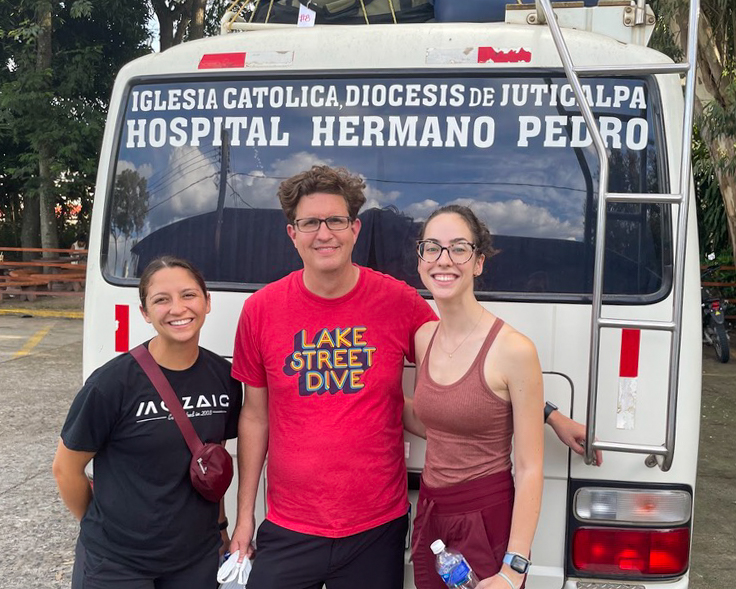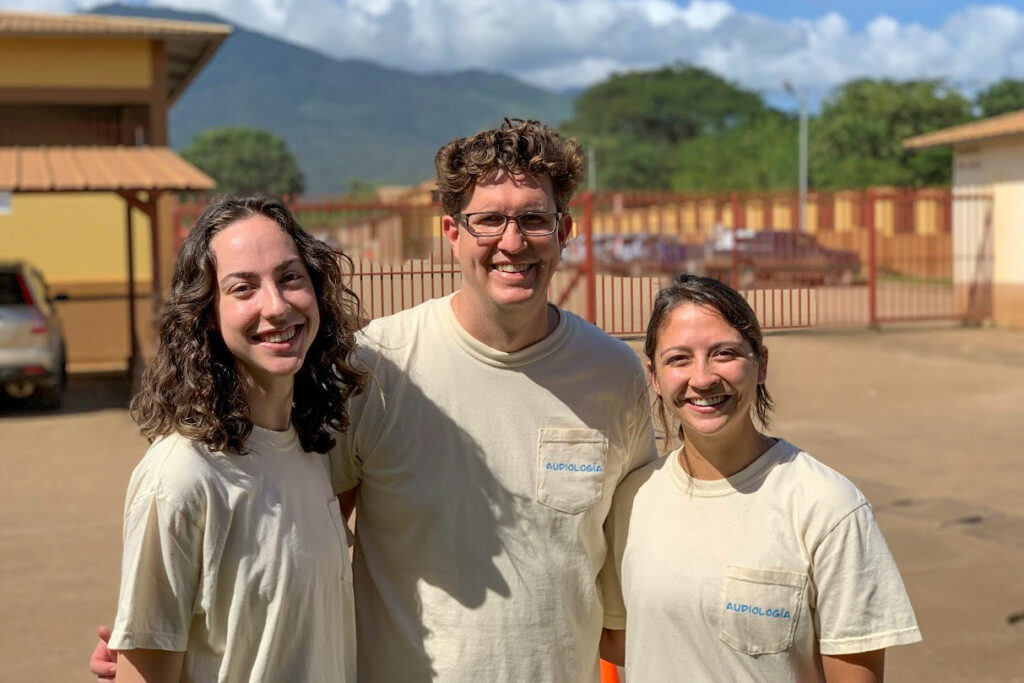Washington University Clinical Audiologist Steve Smith and two audiology students, Brynn Gentile and Sarah Goltsman, contributed their skills to a humanitarian effort in Catacamas, Honduras this past October. They provided 126 hearing evaluations and 138 hearing aid fittings as part of a larger ENT effort that saw almost 400 patients and conducted 50 surgeries during the four day mission.
Smith has participated in the mission trip since 2015. Having lived in the Honduras during his twenties, he longed to become involved in an effort that could benefit from his professional skills and allow him to use the Spanish he had learned. He found that opportunity with an ENT group at Saint Louis University.
The effort, which is entirely voluntary, has grown each year in the number of patients seen, says Smith. Preparation starts six months in advance and involves a lot of “beg, borrow and steal”. The trip is made on vacation time and requires donations for all supplies, including hearing aids, batteries, and ear mold supplies.
As word has gotten around, Smith has received hearing aid donations from patients, audiologists and manufacturers. Some have been very generous.

“Making sure I can program all the hearing aids that are donated is a huge effort,” says Smith. I have an old laptop that I use and cross my fingers each year that all the software works.”
Student participation was an early goal
“The first year I went by myself and quickly realized I could do more if I had more hands,” said Smith. “I talked the organization into letting me take one student for the next several years, but the trip was then put on hold a couple years due to COVID. This past year the trip resumed, and I talked them into allowing two students. Brynn and Sarah were both eager to go. The goal is to continue to have a students participate but that has a lot to do with funding and space on the bus.”
For the third year audiology students, the effort was life-changing. Goltsman found the entire medical team very willing to share their skill and experience with her.
“Despite the fast pace, so many different members of the brigade took the time to teach me what they were doing and how that fits into the bigger picture,” she said. “Even as a student, I felt like a valued member of the team, and I learned so much about audiology, humanitarianism, and the communication skills that I hope to bring to my patients as my career begins.”
Gentile appreciated the recognition of the skill she has already obtained at this stage of her education.
“Being able to use the skills I have learned through my education at WashU was rewarding and encouraging,” she said. “We got to see the immediate impact that hearing evaluation and hearing aids can have on people’s lives. It was a powerful reminder of how important audiology is in health care.”
To learn more about this humanitarian effort or how you can donate, please contact Steve Smith.
